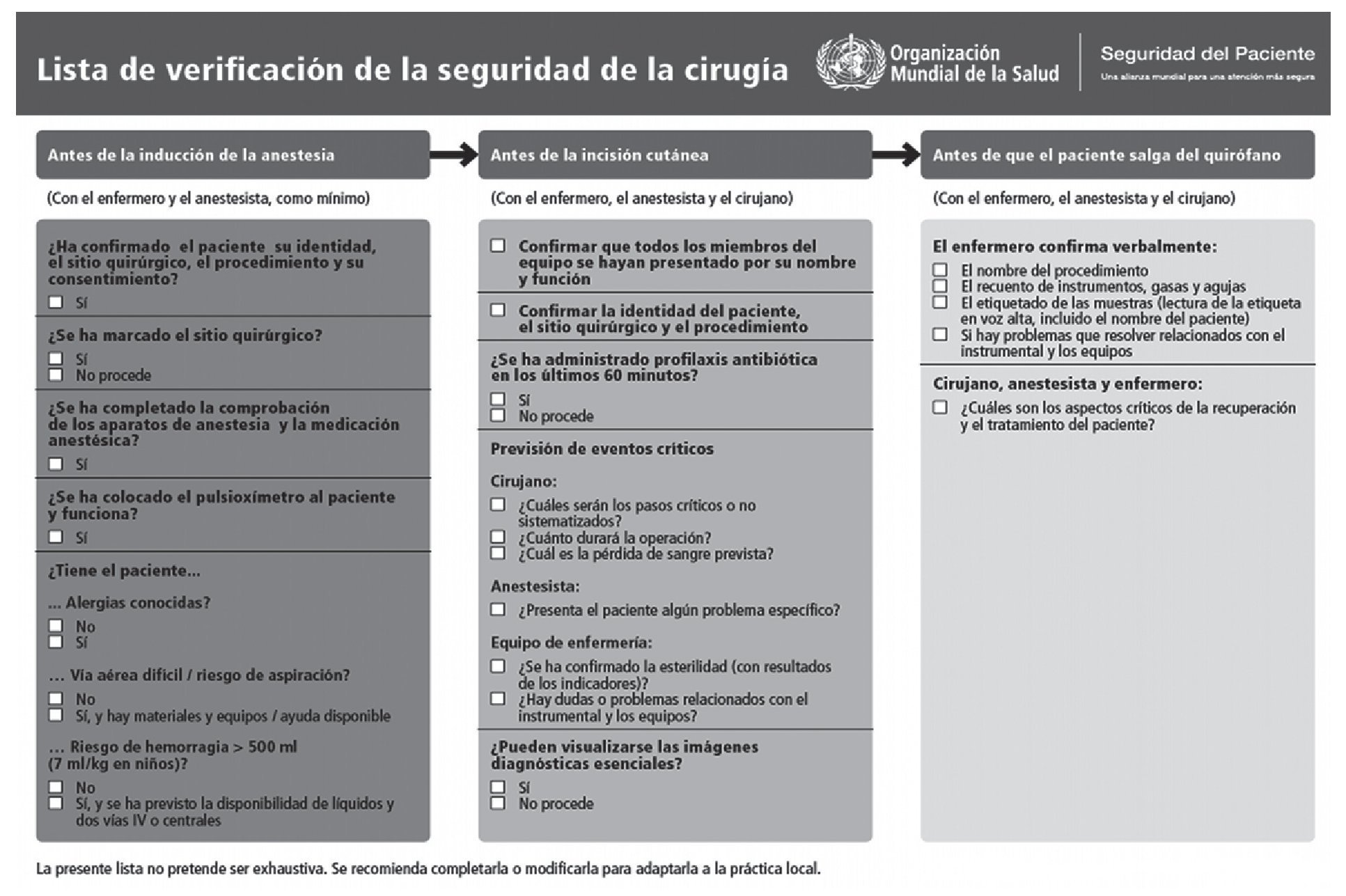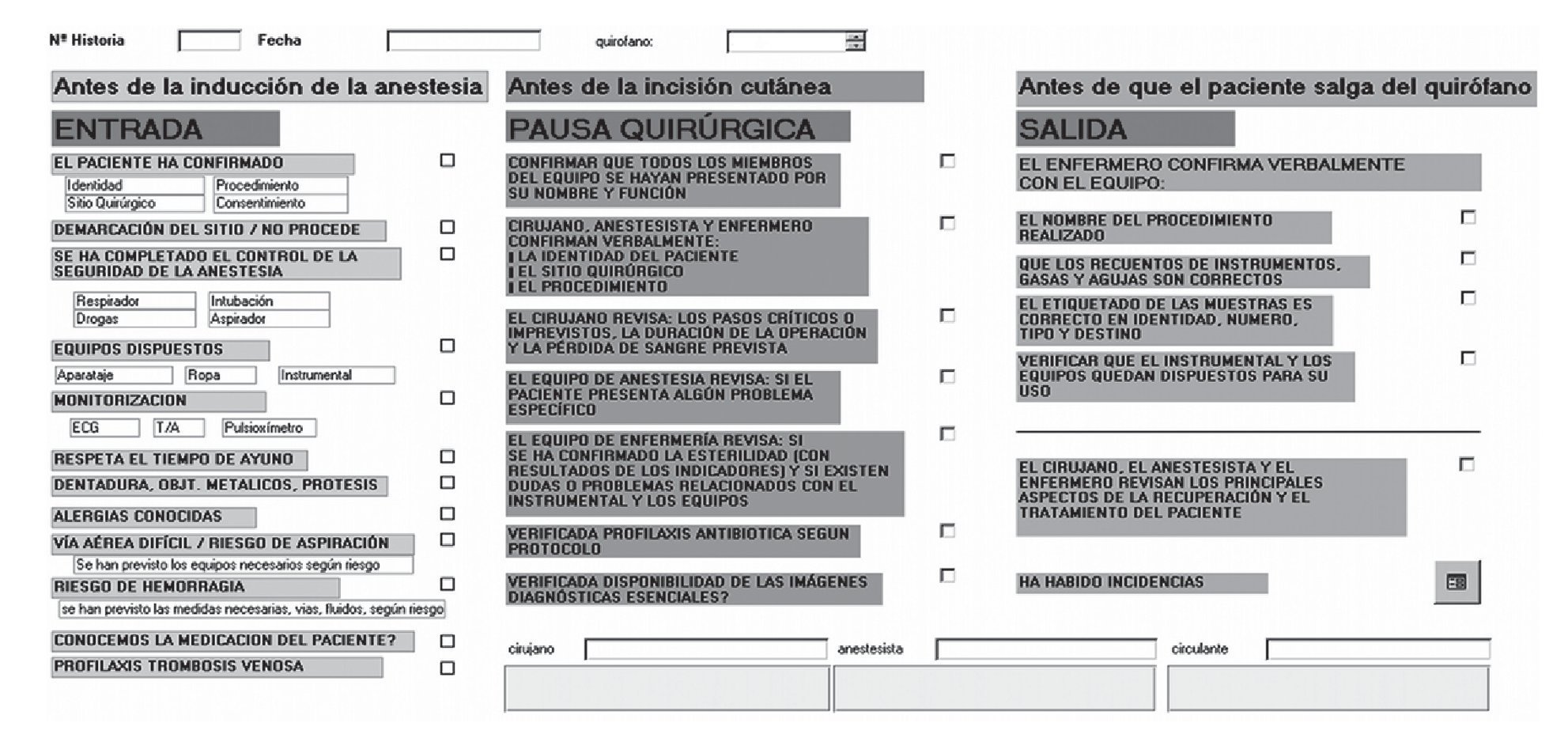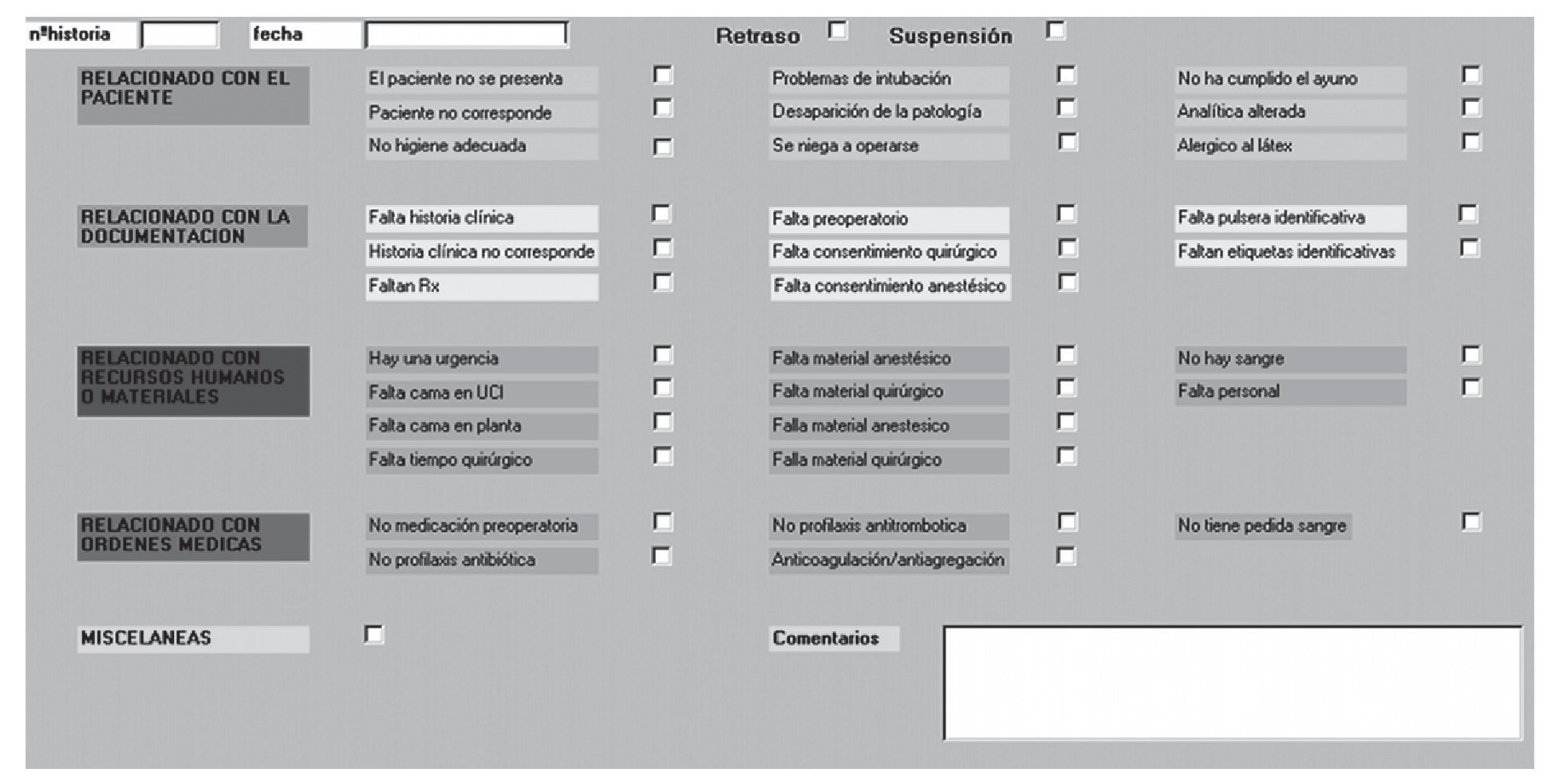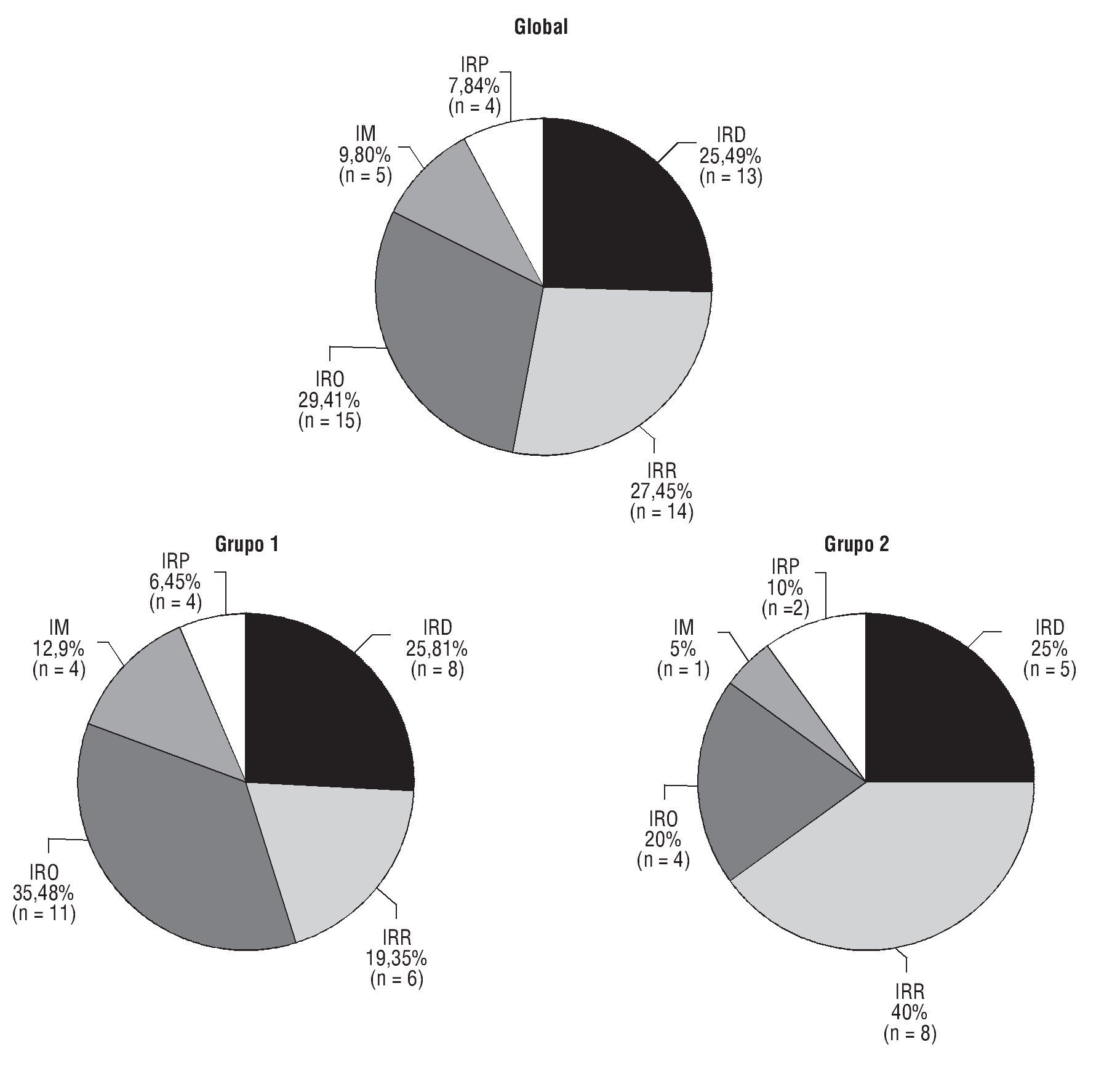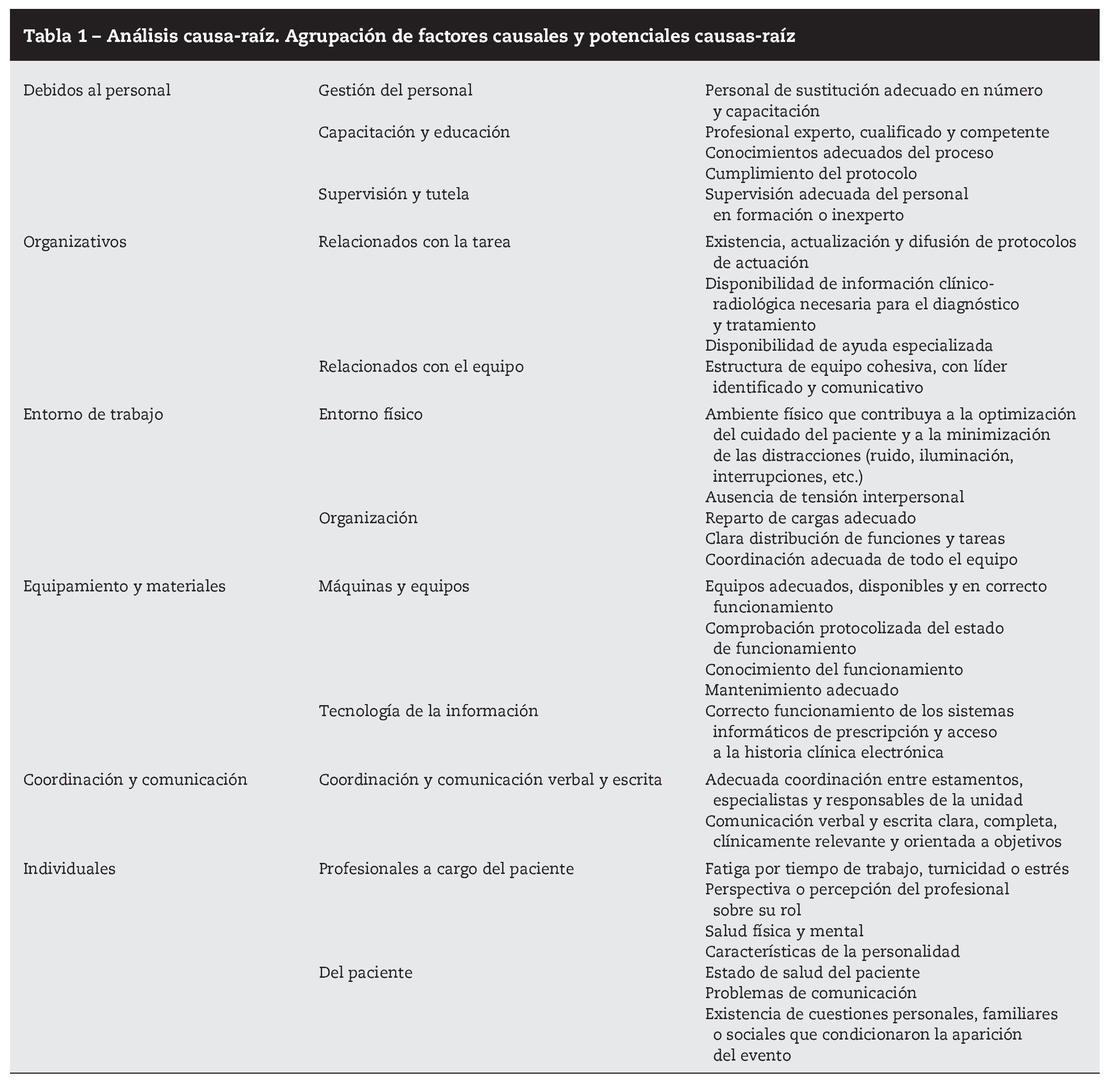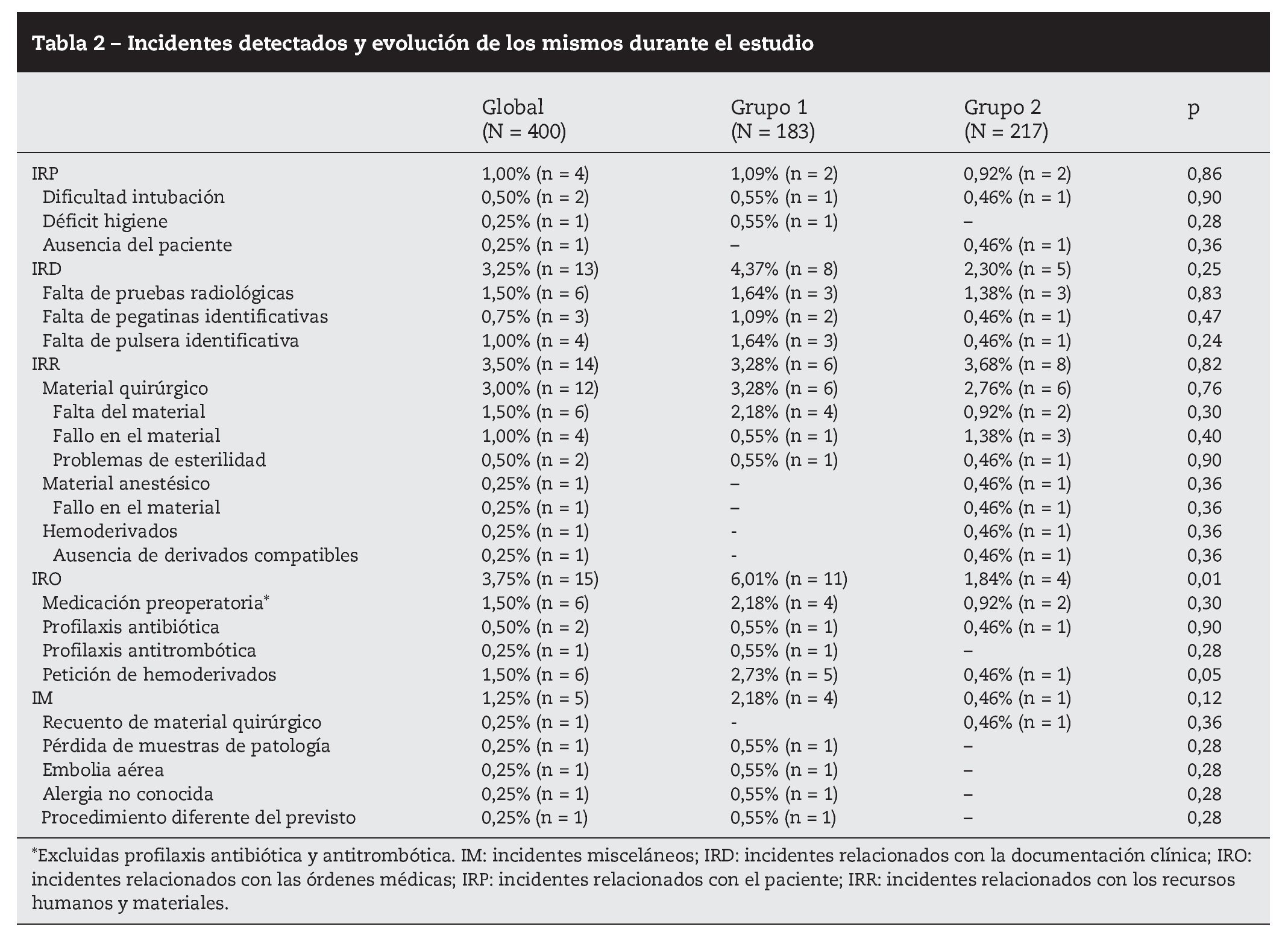Introducción: Las complicaciones de los procedimientos diagnósticos y terapéuticos, así como los errores asociados a éstos, son una causa importante de morbilidad. En un intento de minimizarlos, la Organización Mundial de la Salud (OMS) ha propuesto una serie de medidas aplicables tanto a pacientes médicos como quirúrgicos. Entre estas últimas destaca la lista de verificación quirúrgica (LVQ), un breve cuestionario que, sin incrementar el gasto hospitalario, resulta accesible a todos los centros quirúrgicos y es adaptable a las necesidades de cada uno de ellos.
Objetivos: Valorar la efectividad de la implantación de la LVQ de la OMS modificada en la mejora de la seguridad del paciente neuroquirúrgico y de la calidad de su atención en un hospital universitario de tercer nivel.
Material y métodos: La LVQ fue aplicada a una serie de 400 cirugías programadas entre mayo de 2009 y mayo de 2010. Durante los primeros 6 meses se realizaron 183 procedimientos quirúrgicos (grupo 1). Los incidentes detectados durante este período fueron sometidos a un análisis causa-raíz (ACR), introduciéndose medidas correctoras de acuerdo con sus resultados. Doscientas diecisiete cirugías fueron realizadas en los 6 meses posteriores (grupo 2).
Resultados: Aparecieron 51 incidencias que afectaron a 44 procedimientos (11%). El 88,2% de estas incidencias pudieron ser subsanadas precozmente, sin repercusión sobre la cirugía. En el grupo 1 se produjeron incidencias en el 15,3% de las intervenciones. El ACR demostró causas-raíz de origen humano en el 37,8%, problemas de equipamiento y material en el 29,7%, y causas organizativas en el 21,6%. En el grupo 2 se detectaron incidencias en el 7,4% de los procedimientos (p = 0,01). Las medidas correctoras previnieron la aparición de eventos perioperatorios en una de cada 13 intervenciones.
Conclusiones: La LVQ es una herramienta efectiva a la hora de mejorar la seguridad del paciente neuroquirúrgico y puede implantarse en los servicios quirúrgicos de cualquier hospital sin incrementar los gastos hospitalarios ni alargar el tiempo quirúrgico.
Introduction: Adverse events during diagnostic and therapeutic procedures and medical errors associated with them are an important source of patient morbidity. In an attempt to reduce these, the WHO has proposed a series of measures applicable to medical and surgical patients. Within these last ones is the surgical safety checklist (SSC), a brief questionnaire that does not increase healthcare costs, is accessible to all surgical centres and can be adapted to each specific environment.
Objectives: To evaluate the effectiveness of establishing a modified WHO SSC on the safety and quality of care of the neurosurgical patient in a third-level university hospital. Material and methods: The SSC was applied to a series of 400 scheduled surgeries between May 2009 and May 2010. During the initial 6 months, 183 surgical procedures were performed (group 1). All adverse events detected in this period were studied with a root-cause analysis methodology (RCA) and, according to its results, corrective measures were introduced. After that, 217 procedures were performed (group 2).
Results: We recorded 51 events in 44 surgeries (11%). We were able to correct 88.23% of them before surgery was initiated, avoiding any consequence in the normal management of the case. In Group 1, incidents were noted in 15.3% of the procedures. The RCA suggested that 37.8% of the events had a human cause, followed by problems related to material resources and equipment in 29.7%, and organisational reasons in 21.6%. Incidence of events was reduced in group 2 to 7.4% (P=.01). Corrective measures prevented the appearance of perioperative events in 1 out of 13 procedures.
Conclusions: The SSC is an effective tool for improving safety in neurosurgical patients, which can be established in surgical departments of any hospital without increasing healthcare costs or operative time.
Article

If it is the first time you have accessed you can obtain your credentials by contacting Elsevier Spain in suscripciones@elsevier.com or by calling our Customer Service at902 88 87 40 if you are calling from Spain or at +34 932 418 800 (from 9 to 18h., GMT + 1) if you are calling outside of Spain.
If you already have your login data, please click here .
If you have forgotten your password you can you can recover it by clicking here and selecting the option ¿I have forgotten my password¿.



